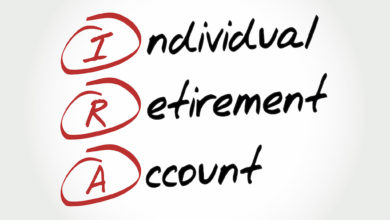The ABCs of Zero Coupon Bonds

At first blush, the idea of a bond that doesn’t pay interest seems oxymoronic. After all, isn’t a bond a debt instrument that pays periodic interest and repays the principal at maturity?1
Zero coupon bonds are indeed debt instruments, but are issued at a discount to their face value, make no interest payments, and pay its face value at time of maturity.
How Does it Work?
Let’s say, a hypothetical zero coupon bond is issued today at a discount price of $743 with a face value of $1,000, payable in 15 years. If you buy this bond, hold it for the entire term and receive the face-value payment, the difference of $257 represents the interest you earned. In this hypothetical example, the bond’s interest rate would amount to approximately 2 percent.
Zero coupon bonds are predominantly issued by the federal government, and typically, they are issued with maturities of 10 to 15 years.
Zero coupon bonds are traded on recognized financial markets and exchanges, which may offer investors liquidity in the event they choose not to hold them to maturity.
Price Swings
One of the biggest risks of zero coupon bonds is their sensitivity to swings in interest rates. In a rising interest rate environment, their value is likely to fall more than other bonds.
Zero coupon bonds are subject to an unusual taxation in which the receipt of interest is imputed each year, requiring holders to pay income taxes on what is called “phantom income.”
Target Dates
For individuals, zero coupon bonds may serve several investment purposes. Zeros may be bought to fund specific future financial obligations, e.g., college savings. By placing them in a U.S. Treasury zero, a parent can be assured that the funds are expected to be fully intact to meet this liability.2
As with any investment, a zero coupon bond’s appropriateness hinges on your individual needs and circumstances. Understanding some of the basic concepts may help you better assess whether they might have a place in your portfolio.
1. The market value of a bond will fluctuate with changes in interest rates. As rates rise, the value of existing bonds typically falls. If an investor sells a bond before maturity, it may be worth more or less than the initial purchase price. By holding a bond to maturity an investor will receive the interest payments due plus your original principal, barring default by the issuer. Investments seeking to achieve higher yields also involve a higher degree of risk.
2. U.S. Treasury zero coupon bonds are guaranteed by the federal government as to the payment of principal and interest. However, if you sell a Treasury zero coupon bond prior to maturity, it could be worth more or less than the original price paid.
The content is developed from sources believed to be providing accurate information. The information in this material is not intended as tax or legal advice. It may not be used for the purpose of avoiding any federal tax penalties. Please consult legal or tax professionals for specific information regarding your individual situation. This material was developed and produced by FMG Suite to provide information on a topic that may be of interest. FMG Suite is not affiliated with the named broker-dealer, state- or SEC-registered investment advisory firm. The opinions expressed and material provided are for general information, and should not be considered a solicitation for the purchase or sale of any security. Copyright 2021 FMG Suite.
###
Learn More About IFW’s 401(k) Savings & Investment Education Services
Maximize Savings Now for More Retirement Income Later
- Understand the differences between accumulation and distribution of your money
- Learn how to build more wealth without saving additional money
- Discover ways to use your savings without early withdrawal penalties
The IFW 401(k) Wealth Maximizer provides valuable financial education and proven strategies to help you unlock the greatest potential of your 401(k). It is designed to help protect your money from potential downside risks and maximize your future retirement income.
REGISTER HERE FOR THE NEXT 401K WEALTH MAXIMIZER LIVE WEBINAR
The IFW provides valuable financial education, resources, and services that help people live their best life.
Please remember, be mindful of the messenger that positions certain products or services as “always” bad or “always” perfect. The fact of the matter is there are no “bad products” or “perfect products”. The right product is the one that aligns with your goals and objectives.
The Institute of Financial Wellness believes when it comes to financial decisions; never say “Never” never say “Always”…It Depends.
Rees Bridges brings a unique value to the IFW as both a highly accomplished creative professional and a successful financial services executive to serve in his role as Senior VP, Marketing & Communications.
Over the last decade Rees has served as the lead marketing & communications professional for a Fortune 500 Financial Services firm. He oversaw all advisor marketing strategies, client communications, and the entire firms branding and marketing initiatives.
Rees continues to pursue his passions as a creative professional & musician for over 30 years, with an impressive profile and reputation as a designer, performer, teacher, and studio musician. Here is a little secret: He serves in the role as an international clinician for Mapex drums, Paiste Cymbals and held the record for world’s fastest drummer between 2006 and 2007.
Rees grew up in London, England and currently resides in Miami, Florida. When not at work, he enjoys spending time with family and friends, traveling, and indulging in his passions for music and creative pursuits.






